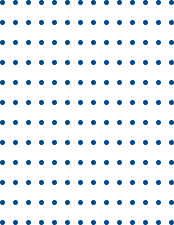Why being mindful is super important to your health and your waistline
“What? You mean I don’t even have to change what I eat; I can just change how I eat, and I’ll lose weight?”
Hold your horses there, overzealous person who doesn’t want to change their diet for fear of leaving their comfort zone…
Now of course learning “how” to eat properly can make a huge difference to your health, but without changing anything about the food quality you’re leaving a lot up to chance with regards your health and body composition.
Now we’ve got that exclaimer out of the way, what am I talking about with regards to the importance of the “how” over the “what?” Let’s go back a few millennia to see what we’re dealing with here.
Now as Man was separating from Ape into its own species (Homo Sapiens) we were very adept at being hunter gatherers. We developed traps and weapons to be able to track and capture animals, whilst foraging vegetation along the way to keep us topped up. The only issue with that was unlike a Tesco’s local you can’t just pop in and grab your bits when you’ve got nothing in the fridge. So, our incredible bodies developed a system whereby we stored excess calories for later (in the form of bodyfat) and we had hormonal signals built into us, to tell us when we were hungry and when we were full. A great warning system reminding us to eat otherwise we’d die, thanks body.
Fast Forward to the 21st century and food (in the west) has never been more readily available. I mean by only using your thumb you could order up over 2000 kcals of pizza to your door in 20 minutes. What a world we live in. However, this has led to one big problem. Our ever-expanding waistlines. Part of the problem for some is that the foods current available are highly processed, highly palatable and require little to no effort to consume or digest. This basically bypasses our built-in fullness signals that tell us to stop eating when we’re full. Plus, all the distractions these days it’s a wonder we get anything done. It’s common place now for whole family’s to not even talk to each other whilst out at dinner because they’re all plugged into the matrix (usually via an iPad) and their minds are elsewhere.
Something we have lost is the ability to be present. Living in the moment. With constant bombardment about the world ending and an ever-present anxiety about stupid things we’ve done in the past, it’s no wonder we’re failing when it comes to how we eat. Apart from your parents making airplane noises and you having to sit down at school, no one has probably told you how to eat for most of your adult life. Until now!
There are some really simple steps that you can take to improve how you eat, our list is below:
- Eat Slowly
- Chew your food
- Eat without distractions
- Eat until you’re 80% full
- Eat as a family
Now my advice to improving how you eat is not some new age hippie malarky, it’s all backed by science. But let’s take each point and explain why it’s so important and how it can make a big difference to your waistline without having to track your calories.
Eat Slowly
This is one I have always struggled with and I’m going to blame my brother, Or siblings on the whole. Since a very young age we were taught to always finish all the food on our plate (in hindsight not the best nutritional strategy, not that it’s my parents fault, they learnt that from their parents, when food was actually scarce…so cheers Nan and Grandpa) so in order to get back to our fun and games, usually him beating the crap out of me, that meant having to eat fast. Also if I didn’t eat fast he might then steal food off of my plate, another reason to eat quickly.
The issue is when we eat fast, we don’t give our brain a chance to register to amount of food we have eaten. Digestion starts at the brain; it starts with our noses smelling our food and that sends signals to our digestive system to start revving up the engine. However, if we inhale our food as fast as we can the system isn’t fully prepared to be able to digest efficiently. The other issue is that we can actually eat more than our body should due to the fact our fullness/satiety signals don’t get a chance to make themselves known. This is actually how bears eat in their lead up to hibernation, they eat as fast as possible in order to be able to consume as many calories as they can so that they’ve got enough stored calories to last their epic 7 month fast. So, don’t be like a bear, slow down and be mindful of the fact that you’re eating food.
Quick Tip: set a 10-minute timer on your phone and aim to finish your plate within the last minute of the timer going off.
Chew your food
Now we have the amazing white pieces of bone in our mouths called teeth. They’re all different shapes and sizes and all play a role in mashing, cutting, breaking down the food we put in our mouths. The issue these days is that people eat in such a hurry they forget about their pearly whites and instead do their best impression of a seagull inhaling down some chips that they’ve just stolen from an unwitting bystander. Most indigestion comes from poorly masticated food, as well as potential food intolerances but that’s another conversation for another day. So, if you remember nothing from this, please remember these four words…
“CHEW YOUR F***ING FOOD”
I promise you this one not only makes you slow down, but it also makes your whole digestive system function better. Imagine just throwing a whole steak into your stomach and it just sitting there, breaking down as the HCI (Hydrochloric Acid) goes to work. Probably not the best use of its time. So instead give your stomach some more surface area to work with and help make the whole process smoother. You’ll extract more nutrients from your food AND your digestive system will function better. Plus, chewing your food allows you to taste it.
Quick Tip: Count to 25 every time you put food in your mouth. You’ll struggle the first few times you do this, but it will become habit quickly. You don’t need to chew food 25 times, but it’s a good challenge and gets you to focus on slowing down.
Eat without distractions
Did you know our attention spans are shortening? Apparently, the average attention span (according to Microsoft) is now down to 8 seconds, which was up at 12 seconds at the turn of the century. No wonder our waistlines are still increasing, our brain is constantly being pulled left, right and centre away from what were simple tasks by flashing images, beeps, notifications, news updates, blue screens and more. People now see eating as an inconvenience, a break in their day away from their tasks at hand. Now I understand that people are busier these days, and that’s absolutely fine. However, we should still be prioritising time out of our day to focus on eating our food, without distractions. This means putting your phone down, turning off the TV, sitting at a table and watching your food as you eat it. Actually, watch your fork or spoon do its job and pick your food up as it vessel’s it into your mouth. I know right, such a novelty these days. BUT so important to you being mindful, slowing down and acknowledging that you’re eating. This will in turn make the brain focus on its job at hand (which is digesting your food) not being all hyped up getting annoyed about Karen on Facebook going off on some ridiculous rant about the death of the Highstreet.
Quick Tip: Put your phone away or on charge when you’re eating, then you’re not tempted to look at it. Take a few deep breaths and enjoy your meal.
Eat until you’re 80% full
Now unfortunately we don’t come readily equipped with a fullness meter on our stomachs like an oil gauge on a car. We do however have some fullness sensors in our stomach that do let us know when we’re almost at the brim. Now we will all know how it feels to be stuffed, it’s uncomfortable and your clothes feel tight and you couldn’t possibly eat another mouthful…unless there’s some dessert to be had. Maybe a wafer-thin mint? We want to stay away from this feeling if possible. Our stomachs aren’t great at dealing with a huge bolus of food at one time. It’s like stuffing a whole toilet roll down the toilet, it ain’t gonna go well when you press that flush. So, we want to aim for around 80% full, but what does that mean? Well, if you’ve been following the previous points that feeling should be satisfied without feeling stuffed. The slower and more mindful you are when you eat, the better you’ll be at identifying this feeling.
Quick Tip: Leave the meal thinking I could have eaten more, but I would have been uncomfortable to do so.
Eat as a family
So, let’s tie this all together. What is food? Well food is a collection of calories that we ingest, utilise for fuel and excrete out the other end. That’s a very simplistic way of looking at it, but food is so much more than fuel. Food is culture, memories, taste, texture, smells, celebrations, conversations, family and much more. So, to view food for solely its caloric value is wrong, BUT we do need to be aware of what foods we’re eating and how. This brings us to family and why the dinner table should be the command centre of the household. This is where important conversations happen, we talk about our day, we discuss current events, we laugh and cry and do everything there. This is where food is a vessel for many other things, like connections and interactions. Eating together as a family is super important because not only does it allow us to interact, it also naturally slows us down, makes us focus on our food, allows us to appreciate it and chew our food (because it’s rude to speak with your mouth full).
Summary
If you’ve taken away anything from this article, I hope dear reader that it is to take your time when eating your food. Even if you don’t chew 25 times, or sometimes read your phone when you eat, or dare I say it eat in front of the television, that’s ok. Just remember to breath between bites and enjoy your food. We’re incredibly fortunate to have access to healthy nutritious food, don’t let it pass you by and be distracted by other things. Give your food some respect and enjoy every mouthful. If you can do it in the presence of others, that’s a bonus too.

